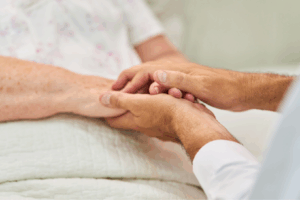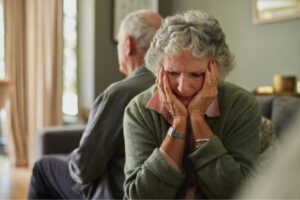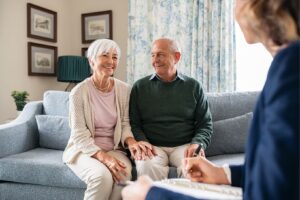It’s every son or daughter’s worst nightmare: you receive a phone call at three in the morning, saying your elderly mom or dad has fallen. They’ve been taken to the emergency room, but doctors don’t know the extent of the damage just yet. There are definitely scrapes and bruises, and there may also be sprains or fractures.
Worst of all, they may have broken a hip, and there’s no way to tell what the future holds after that. They could learn to walk again after months of grueling physical therapy, or the damage may be too great, leaving them with chronic pain, limited mobility, and reduced independence for the rest of their lives.
Is there a way to stop this disturbing scenario before it even starts? Read on to find out why falls happen and if a personal home assistant can help with elderly fall prevention.
Why seniors fall
There are a number of reasons why homebound seniors fall. Many suffer from medical conditions that limit ambulation, such as diabetic neuropathy or osteoarthritis. Others have chronic illnesses such as heart conditions, or traumatic events like strokes, that leave them permanently weakened. Some are even on medications that make them dizzy and disoriented.
One of the biggest reasons for senior falls is getting up in the middle of the night to use the restroom. It’s almost a perfect storm: the senior is groggy, may have poor vision, and feels the need to move quickly in order to avoid an accident. The result is that when they fall, they can be left lying on the ground for hours (or even days) until someone finds them. By then, the damage to their frail bodies may be too great to repair.
There are also psychological factors that come into play regarding fall prevention. Seniors are like any other age group – they enjoy feeling independent, and often don’t like to admit when they need help. As such, they may attempt to engage in activities that are no longer feasible to do on their own. Whether this involves walking long distances, bathing without assistance, or doing housework, a fall can easily occur when the tasks exceeds the senior’s capabilities.
Many seniors also fear that accepting any kind of help for basic activities will slowly force them into a nursing home at some point. However, this is often a myth, as getting help at home has actually been shown to keep seniors in their preferred living environments.
Fall prevention is possible with a personal home assistant
One of the best methods for fall prevention is having a personal home assistant visit your senior – even if it’s just for a few hours a week. They can provide supervision for household tasks (and even perform many themselves), or retrieve items your senior has difficulty accessing. Many are able to stay overnight, and are available to assist your senior in getting to the restroom safely. If the aide helps the senior with bathing, this can also prevent falls, since slipping in the tub or shower is extremely common and very dangerous for the elderly.
Having a home health aide walk with them to stores, doctor visits, or on errands is also a key method in fall prevention. A good aide always encourages seniors to be independent, whether it means using their walker or cane, or going as far as they’re able without needing to rest. But these aides also know when to give physical support to the senior, such as letting them catch their breath, or just allowing their client to lean on them when necessary.
Don’t delay getting fall prevention help
The sooner you get fall prevention help for your senior, the better. Remember: the risk for falls doesn’t decrease as we age – it increases. But with the right service, you may be able to help your special senior avoid a life-changing accident. If you think that your loved one may be a fall risk, speak to their physician, or contact a quality home care organization for more information.
If you are unsure of how to best help an aging loved one, the trained and compassionate staff at the Institute on Aging is here to help you make that decision and gain the best in at-home senior care. Contact us to find out more.





